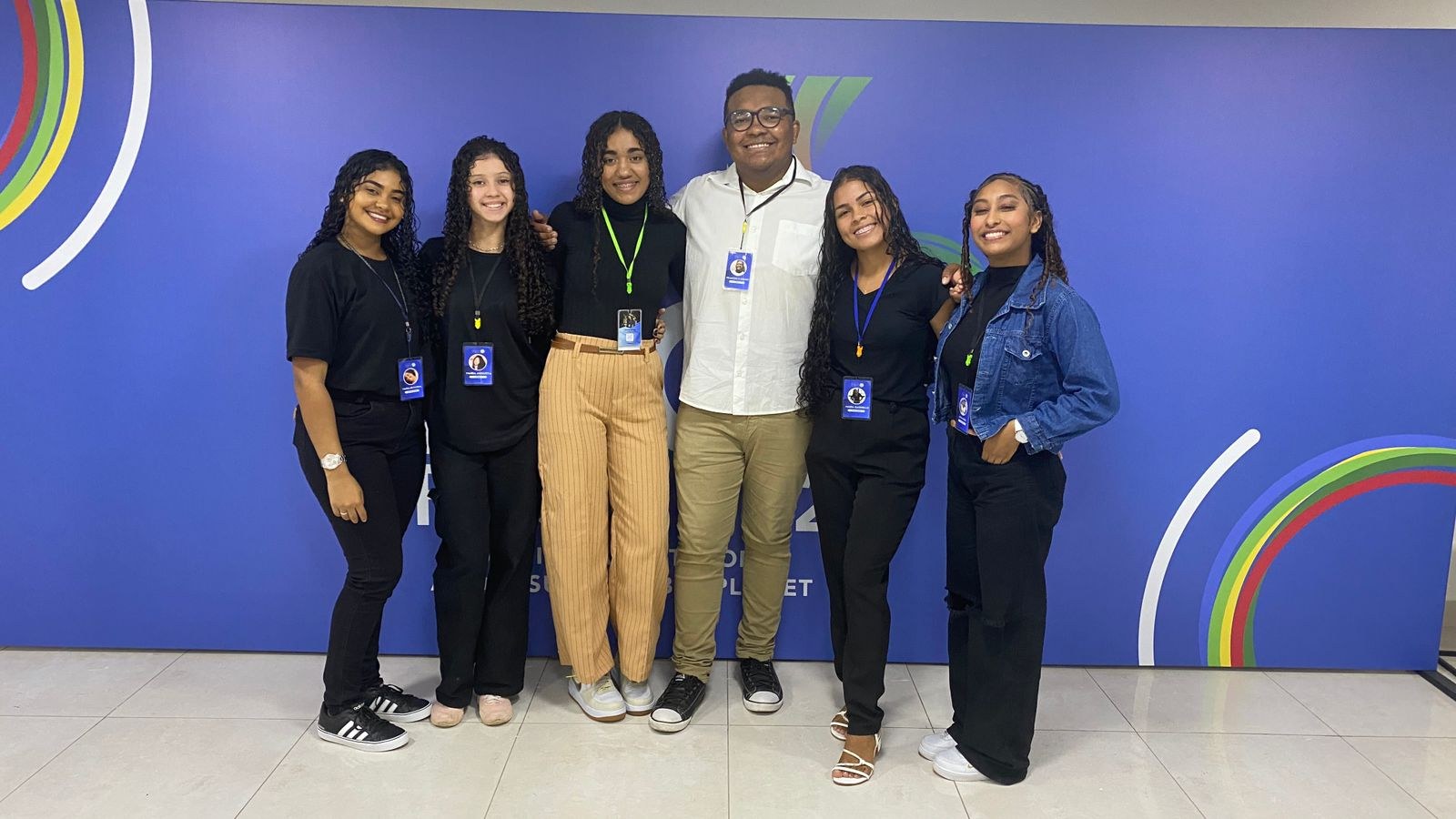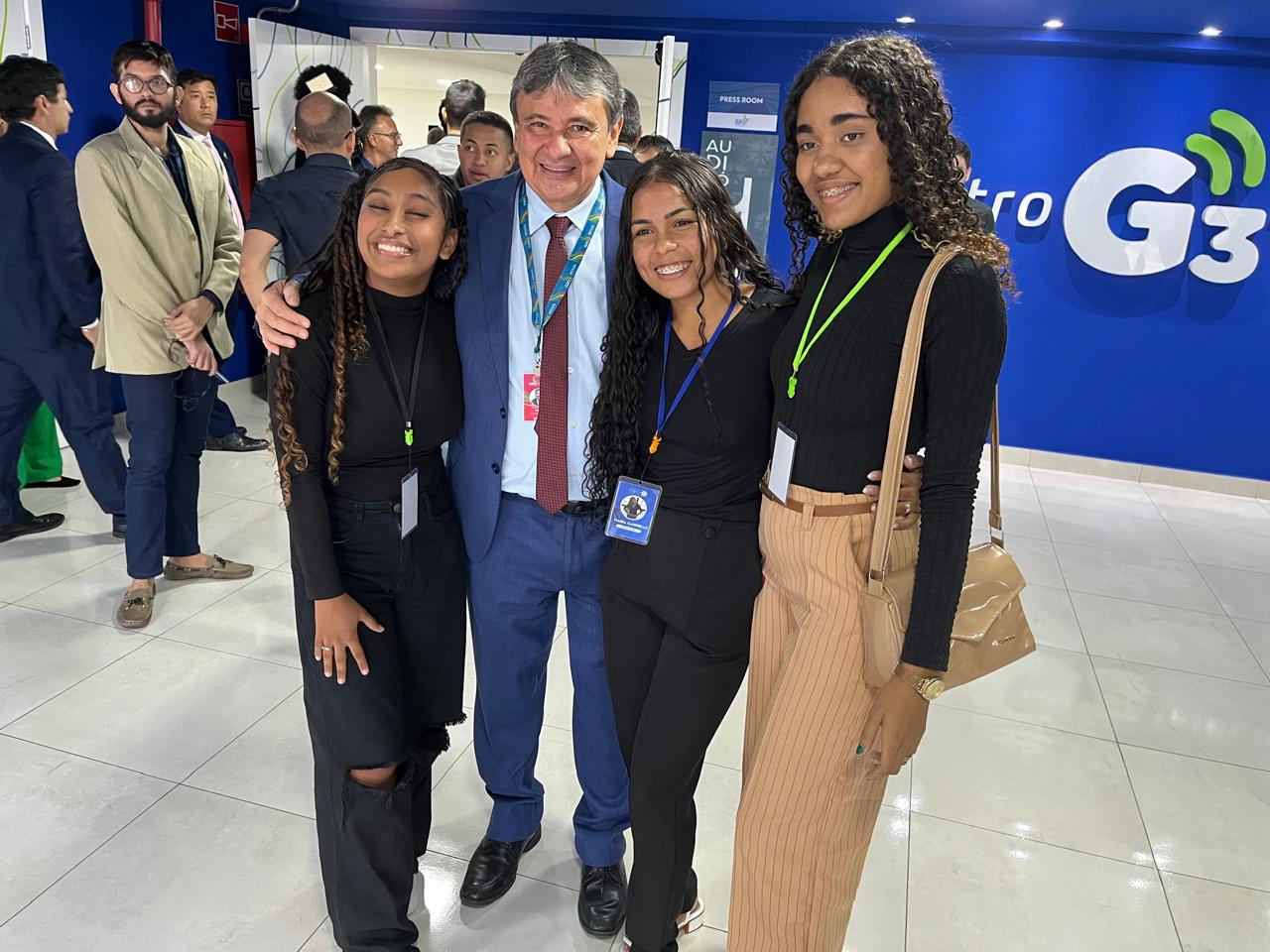G20 coverage, an interview with a minister and the search for relevant news are all on the agenda of young reporters from Teresina
Young reporters from the PodCeti podcast in Teresina interviewed Minister Wellington Dias (MDS) at the press conference held during a meeting of the Task Force to establish the Global Alliance against Hunger and Poverty. The project encourages teenagers to reduce their involvement with social media and to consume and produce quality news about Brasil and the world.

In 2022, teacher Bruno Santos decided to spark his students' creativity and make his lessons more exciting—so he created PodCeti, a podcast that is produced by students at the José Pereira da Silva Full-Time State Center (Centro Estadual de Tempo Integral José Pereira da Silva) in Teresina (state of Piauí). The podcast addresses important topics and activities concerning everyday life at the school, and gives students the opportunity to be communicators.
Student and project participant Lívia Maria de Jesus Araújo, 17, said that what motivated her to take part in the project is her wish to encourage her classmates to take an interest in the news and in events at school and beyond. Lívia believes that young people have access to a lot of content nowadays and end up consuming only light and entertaining videos most of the time.
''For my generation it's important, because young people are exposed to a lot of news that isn't important. They have access to social media, they're informed by it, but they don't know what the G20 is and how important it is for Brasil, for instance," said Lívia.
According to teacher Bruno Santos, the G20 meeting in Teresina is a good opportunity for the students to follow the discussion concerning the fight against hunger, and to understand the importance of mutual help when facing the challenges. "We don't exist alone, we need each other's help—and here I can show them how one nation is helping another to think of a solution to hunger and poverty."
As well as offering information to her colleagues, Lívia says she had incredible experiences—such as meeting President Lula during the national launch of the Pé de Meia project in Brasilia. "I like taking part in the project because I have had experiences I never imagined I would have. The project has given me many new things."
Professor Bruno felt honored to see a student gaining new experiences and a meeting with the Brazilian President. "I'm very happy because they can see how the world works outside of school and experience what it’s like to be a journalist."

Like grown-ups: young reporters interview the minister
During the press conference held by Minister Wellington Dias (Development and Social Assistance, Family and the Fight against Hunger) at the opening of the meeting of the Task Force to build the Global Alliance against Hunger and Poverty, on Wednesday (22), student Maria de Fatima de Sousa Simeão, 19, asked him about the importance—to Piauí and Brasil—of the event that brings together the world's largest economies. According to the student, it's a privilege to be able to break school routine and observe how a meeting with international political stakeholders works.
To Maria Gabriela do Nascimento, 16, attending a G20 event offers her knowledge of new words and contributes to her development as a person and student, as well as preparing her for a career in journalism. Naturally communicative, she wants to take the entrance exam for journalism and pursue a career in the field.
More books, less internet
Aware of the appeal that social media has for teenagers, Professor Bruno defends the role of education in guiding new generations. Currently, new subjects have been added to the high school curriculum, so the creation of one aimed at shielding students from fake news would be extremely important. In his opinion, students must be taught how to be critical so they know how to tell the difference between what is real news and what is fake.
Furthermore, due to his daily practice in the classroom, Bruno is all for encouraging reading and restricting the time teenagers spend on their phones. He observed that students are losing their ability to concentrate, and find it difficult to read longer texts. During a recent test, a few students asked for their phones back after two hours, but the Enem exam lasts four. The teacher says he is worried about this situation.
"I think more books and less social media would help teenagers. We can have communication, but without education we can't move forward because education is what transforms students' lives," he adds.